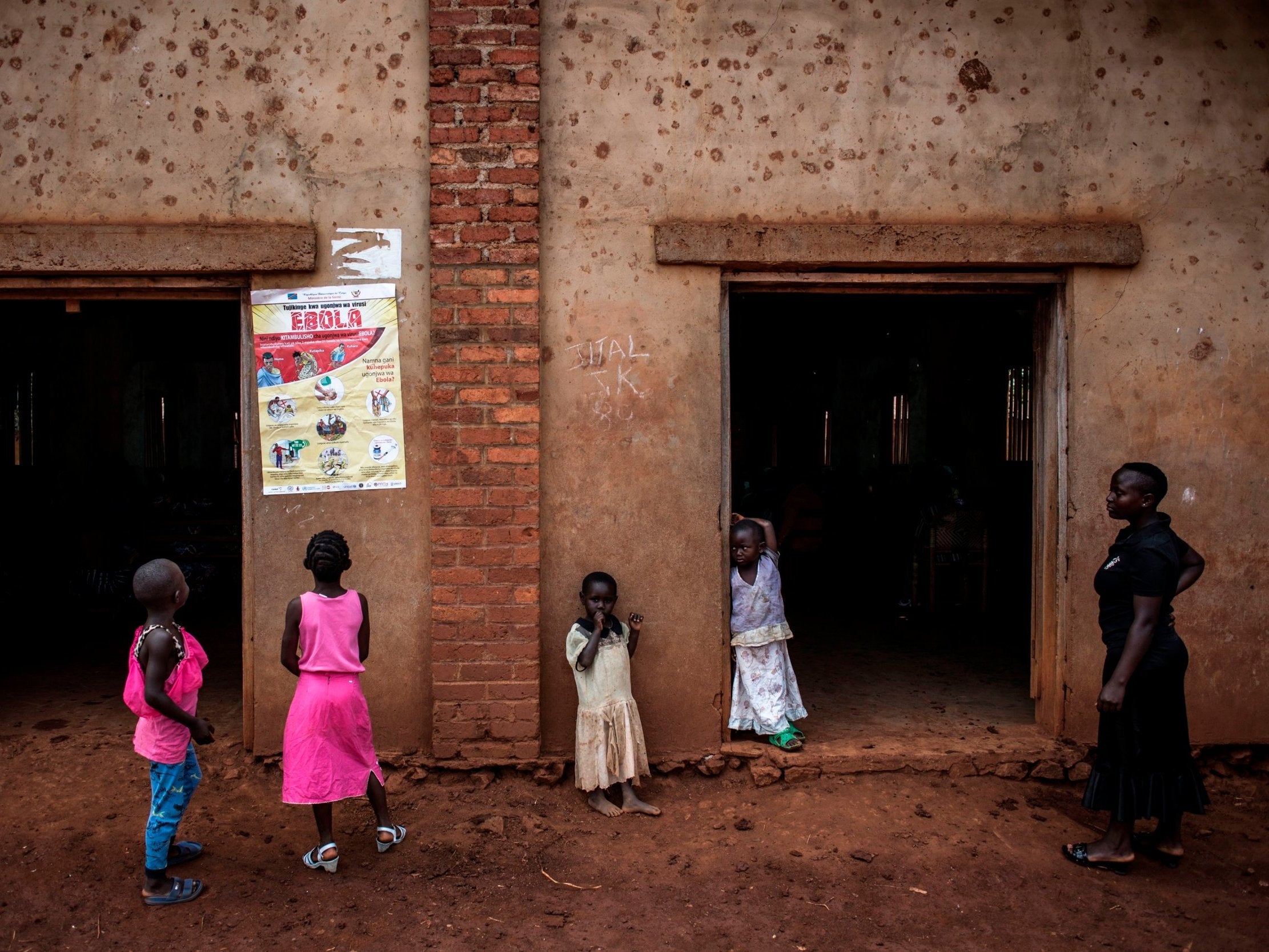
Leading charities have warned that foreign aid cuts by Donald Trump in the US and nations like the UK will have “serious consequences” for the Democratic Republic of Congo (DRC) as it faces a deadly Ebola outbreak and raging conflict.
“What we feared has now happened: the WHO [World Health Organisation] has declared a new Ebola outbreak in the DRC just as the US government and other major donors are implementing drastic foreign aid cuts,” said Mercy Corps vice president of global policy and advocacy, Kate Phillips-Barrasso. Her organisation is providing health kits and supporting public information campaigns.
The DRC has learned from previous outbreaks and in many ways is now better equipped to respond, but experts warn cuts to global aid spending risk eroding this progress.
“Viruses do not respect political decisions or borders. Disengaging in global leadership and slashing funding to countries like the DRC will have serious consequences,” Ms Phillips Barrasso said.
The DRC has been plagued by violence for decades. This January, things escalated after renewed attacks by fighters from the M23 rebel group in the east of the country.
“Although the government has experience in managing Ebola, the DRC is under active war in the east, which might affect its ability to coordinate preventive measures throughout the country,” said Oxfam DRC Country Director, Dr Manenji Mangundu. “We need an immediate injection of funds, and all warring parties to commit to a permanent ceasefire and allow aid to flow freely.”
The current outbreak started with a 34-year-old pregnant woman who was admitted to hospital at the end of August and died within five days. Two health workers treating her also became infected and died.
The Africa Centres for Disease Control and Prevention (Africa CDC) said the total number of cases throughout the outbreak reached 173 last week, with more than 30 deaths.
The Ebola virus is spread to humans by animals, and causes internal and external bleeding. It has a death rate of as high as 50-90% unless patients receive very rapid treatment.
The US previously provided training to local infectious disease experts, funded laboratories, vaccines and treatments as well as prevention.
Whitney Elmer, who leads Mercy Corps’ global emergency response team, said during the two-year long outbreak starting in 2018, her team’s prevention work and awareness-raising campaigns were supported by the United States Agency for International Development (USAID).

“The US was one of the biggest funders,” she said, adding that this left a “question mark” as to who would step up to replace this, along with other key programmes.
“Mercy Corps had a large access to water program that was supported by the US government and that has been cut,” Ms Elmer said.
“Access to clean water, sanitation, hygiene practices, all of those are essential for stopping the spread of Ebola.”
Some US programmes have been resumed in a much more limited form, but stockpiles of things like drugs and personal protective equipment (PPE) are not being maintained now USAID has been shuttered, former Deputy Assistant Administrator for Global Health at the agency Nidhi Bouri told The Independent.
Shortages of PPE and challenges getting information, vaccines and treatments out to remote areas long predate funding cuts.
“It is too early to assess the potential impact of US aid cuts on current efforts,” said Dr Hilde De Clerck, a leading Ebola doctor with Médecins Sans Frontières (MSF) which is also on the ground treating patients.
“What we do know is that, over the years, strong support from the United States has played a critical role in responding to deadly Ebola virus disease outbreaks in countries like the DRC,” she added.
That includes funding of the DRC’s overall health system. The Center for Global Development’s latest estimates from March suggest the DRC was one of the countries worst-affected by Trump’s cuts, losing more than a third of its funding worth $387m. This broad picture is likely to remain unchanged as of the start of the outbreak, the research group told The Independent - despite an acute need for humanitarian assistance.
Africa CDC said: “Currently, the US CDC and the US State Department remain actively engaged in the Ebola response alongside Africa CDC and WHO at the global, regional, and national levels. In the Democratic Republic of Congo, the US CDC is playing an important role in supporting surveillance activities, which are essential to controlling the outbreak.
“So far, these activities remain ongoing and there has been no disruption of key Ebola response operations, with the US CDC and the State Department actively engaged alongside Africa CDC and WHO. However, additional funding is urgently needed to strengthen field activities, as new cases are being detected in additional health areas of Bulape Health Zone, including Bambalie, resulting in a growing number of cases and contacts requiring close follow-up.”
Oxfam’s Mangundu is clear about this Ebola outbreak and future support for the DRC: “People need dignity and respite from relentless violence...The world cannot look away”.
This article was produced as part of The Independent’s Rethinking Global Aid project
What is Trump’s new $100,000 fee for H-1B visas, and who does it affect?
4chan’s ‘Operation Clog the Toilet’ causes panic among H-1B visa holders
Kimmel says it was ‘never my intention to make light of the murder of a young man’
Toddlers to get free flu nasal spray in pharmacies for the first time
Heavy drinkers more likely to buy alcohol-free and low-alcohol drinks
Drinking any amount of alcohol may lead to dementia, study finds







